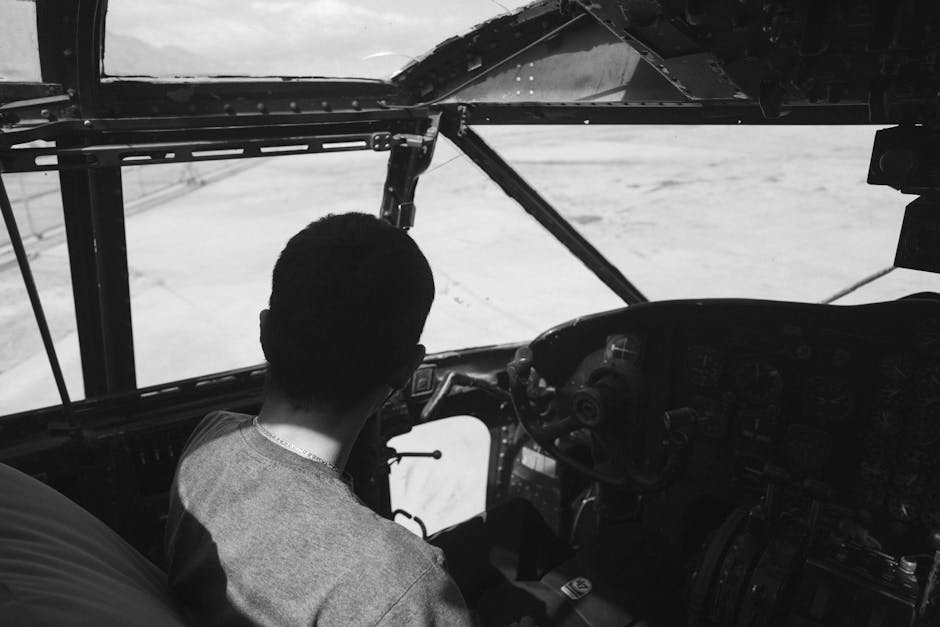Importance of aircraft handling in flight safety
Proper aircraft handling plays a crucial role in ensuring the safety and efficiency of flights. Here are some key points to understand why aircraft handling is important:
- Skilled handling: Pilots need to have precise control over the aircraft during take-off, landing, and inflight maneuvers to prevent accidents and ensure passenger safety.
- Weather conditions: Handling becomes even more critical in adverse weather conditions like strong winds or turbulence, where the pilot’s expertise is essential to maintain stability.
- Emergency situations: In case of any emergencies or technical issues, the pilot’s handling skills are crucial in safely navigating the aircraft and minimizing risks.
- Efficiency: Efficient aircraft handling leads to smoother flights, on-time departures, and fuel savings, making it vital for airlines to ensure both safety and operational cost-effectiveness.
Key responsibilities of aircraft handlers
Aircraft handlers play a crucial role in ensuring the safety and efficiency of flights. Some of their key responsibilities include:
- Directing incoming and outgoing aircraft on the ground
- Securing aircraft in parking positions
- Marshalling aircraft during taxiing
- Operating ground support equipment for aircraft loading and unloading
These tasks are essential for maintaining the smooth operation of flights and ensuring the safety of passengers and crew.
Essential skills for efficient aircraft handling
Aircraft handling demands precision and expertise to guarantee safe and smooth flights. Pilots need to master skills like precise navigation, smooth take-offs and landings, and effective communication with air traffic control. They must also be adept at managing in-flight emergencies and adverse weather conditions. Proficiency in handling aircraft contributes significantly to flight safety and operational efficiency.
Impact of proper aircraft handling on operational efficiency
Proper aircraft handling directly affects an airline’s efficiency. When pilots handle aircraft correctly, it helps minimize delays in departure and arrival times. Smooth handling of the aircraft also reduces fuel consumption, which saves costs and is better for the environment. Precise aircraft handling ensures that flights are comfortable for passengers and reduces the wear and tear on the aircraft, leading to fewer maintenance issues. Efficient aircraft handling is a key factor in maintaining a safe and reliable airline operation.
Factors influencing aircraft handling procedures
Aircraft handling procedures are affected by various factors, including the weather conditions, runway length, weight of the aircraft, and pilot training. Weather conditions play a significant role in determining how an aircraft is handled, as wind, rain, or fog can impact takeoff and landing. The length of the runway also influences aircraft handling, with shorter runways requiring careful maneuvering. The weight of the aircraft affects how it responds to pilot commands, making it crucial for pilots to adjust their handling techniques accordingly. Additionally, pilot training plays a vital role in ensuring safe and efficient aircraft handling, as well-trained pilots are better equipped to navigate complex situations in the air.
Balancing safety protocols with operational needs
To balance safety protocols with operational needs, aircraft handlers must skillfully manage time-sensitive tasks while prioritizing safety at every step. Striking the right balance ensures that flights depart and arrive on time without compromising the safety of passengers and crew. Proper training and clear communication are essential in maintaining this delicate equilibrium.
Training and certification requirements for aircraft handlers
Aircraft handlers need specialized training and certifications to ensure flight safety and efficiency. Here are some key points to consider:
- Aircraft handlers must undergo rigorous training programs to learn proper aircraft handling techniques.
- Certification by aviation authorities is mandatory to ensure handlers meet industry standards.
- Regular proficiency tests are conducted to maintain certification and ensure handlers stay up-to-date on procedures and protocols.
- Continuous training and certification are essential to guarantee the competency of aircraft handlers in critical situations.
Common challenges faced by aircraft handling professionals
Aircraft handling professionals often encounter challenges that can impact flight safety and efficiency. Some common challenges they face include:
- Adverse weather conditions, such as strong winds or heavy rain, can make it difficult to maneuver aircraft safely.
- Limited manpower and resources may hinder the quick and efficient handling of multiple flights.
- Communication errors between ground staff and pilots can lead to confusion and delays.
- Technical issues with ground support equipment, like tow trucks or baggage loaders, can disrupt smooth operations.
- Compliance with strict safety regulations and protocols adds pressure to ensure all procedures are followed meticulously.
Technological advancements in aircraft handling systems
Advanced aircraft handling systems integrate cutting-edge technology to enhance flight safety and efficiency. These systems incorporate innovative features such as automated flight controls and real-time monitoring to ensure precise aircraft maneuvers and minimize human error. Sensor technology plays a crucial role in providing data on various aspects of the aircraft’s performance, allowing for immediate adjustments if needed. Digital communication systems enable seamless interaction between the pilot and ground control, contributing to smoother operations. Overall, these technological advancements in aircraft handling systems play a critical role in maintaining high safety standards and improving overall flight efficiency.
Future trends in aircraft handling for enhanced safety and efficiency
Improvements in technology and design are driving the future of aircraft handling to ensure safer and more efficient flights. Advanced automation systems are being developed to assist pilots in handling aircraft, reducing the risk of human error. Predictive maintenance is also becoming more prevalent, allowing airlines to address potential issues before they impact safety or efficiency. Enhanced training programs for pilots and ground staff are being implemented to further improve handling procedures and overall safety measures. These advancements aim to create a more streamlined and secure environment for air travel in the years to come.


